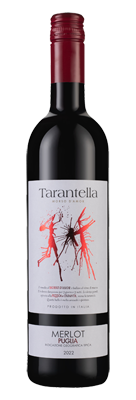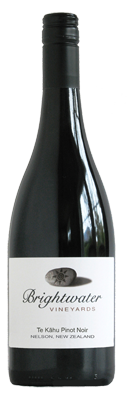Filter by
- “Stylish and complex" 94pt Yarra Valley Pinot Noir "higly enjoyable" (Wine Orbit).$28.00 RRPfrom $28.00 when you mix 12+
- 95pt, Gold, Value Tumbarumba “Punchy, fragrant, full-flavoured... sheer deliciousness." (Halliday).$27.00 RRPfrom $24.99 when you mix 12+
- $22.00 RRPfrom $14.99 when you mix 12+
- Floral 93pt Eden Valley Riesling which "lingers beautifully and is excellent value" (Winepilot)$30.00 RRP$22.99 when you mix 12+
- As sensuous as the dance after which it's named, this Merlot is full of spiced damson pleasure.$24.00 RRPfrom $17.99 when you mix 12+
- Beautifully balanced and silky Pinot Noir from a lovely and dynamic Yarra Valley estate.$32.00 RRPfrom $29.99 when you mix 12+
- 93pt cassis, dark cherry and spice, and good value Coonawarra Cabernet from the great Yalumba.$28.00 RRPfrom $26.99 when you mix 12+
- Juicy and beautifully rounded 91pt Pinot Noir from the superb Brightwater in sunny Nelson.$33.00 RRPfrom $29.99 when you mix 12+
- "...so engagingly drinkable... throughly delicious. 93pts Great Value" (Halliday) Sangiovese.$28.00 RRPfrom $26.99 when you mix 12+
- Single Vineyard Cabernet 2022 with 2 Trophies including Best Cabernet at the Clare Valley Wine Show.$35.00 RRPfrom $32.99 when you mix 12+
- "A smart blend" (Halliday) with Golds, Platinum and 94-96pt scores. "Stunning stuff" (WinePilot).$120.00 RRPfrom $110.00 when you mix 12+
- 95pt, 96pt, Gold-medal, Great Value high-altitude Cabernet from Mountadam's High Eden vineyards.$40.00 RRPfrom $32.99 when you mix 12+
- La Bella, from Spain's Campo de Borja is indeed a beauty – with no fewer than 8 Gold medals.$26.00 RRPfrom $15.99 when you mix 12+
- Top vintage 96pt McLaren Vale Grenache inspired by the rich reds of Châteauneuf-du-Pape.$70.00 RRPfrom $53.99 when you mix 12+
- Brilliantly pink single-vineyard Shiraz Rosé grown by Barossa local Darren Heidenreich$25.00 RRPfrom $14.99 when you mix 12+
- Luscious, smooth southern Gold-medal Rhône red from a 4th-generation estate.$25.00 RRPfrom $18.99 when you mix 12+
- The Hunter Valley's first Barbera – Margan leads the way with this Gold-medal 95pt red!$40.00 RRPfrom $38.99 when you mix 12+
- Bright, lemon fresh, creamy edged and Gold-winning once again.$30.00 RRPfrom $21.99 when you mix 12+
- Exclusive, secret Réserve claret from a Premier Grand Cru Classé château in Pauillac. Unmissable.$70.00 RRPfrom $54.99 when you mix 12+
- From 5 Red Star Halliday-rated Kilikanoon, this exclusive Shiraz has it all$42.00 RRPfrom $26.99 when you mix 12+
- Tahbilk's flagship Cabernet – 95pts in the Halliday Wine Companion$73.00 RRPfrom $65.65 when you mix 12+
- A gorgeous, juicy popular offering from a five-star WA estate.$24.00 RRP$16.99 when you mix 12+
- Wonderfully mature Gran Selección from ancient vines in Spain's great-value Campo de Borja$28.00 RRPfrom $21.99 when you mix 12+
- $28.00 RRPfrom $19.99 when you mix 12+





























